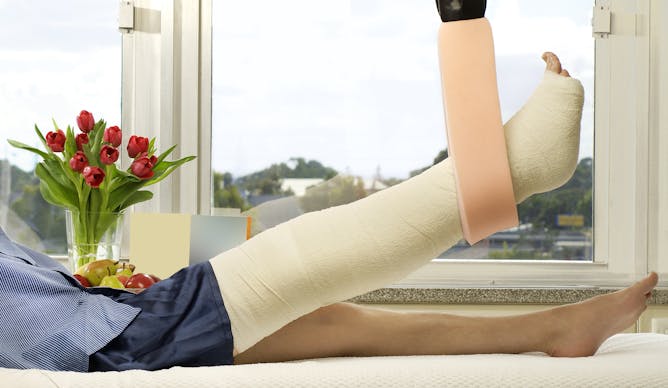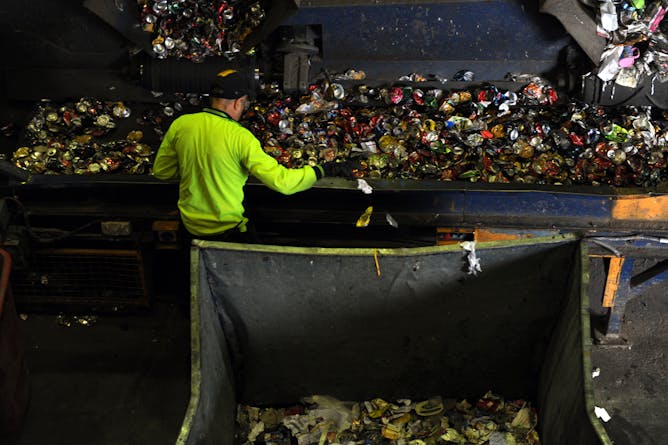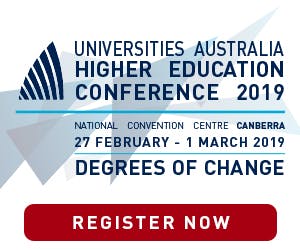|
|
|
Editor's note
|
|
We live in an age of declining trust and information abundance. The information available has exploded but time we have to consume it has not. This creates a dilemma. How can we ration our precious time and decide what’s worthwhile? How can we know what to trust?
This week Australia’s university sector released research that suggests a solution. A survey commissioned from JWS Research found that despite declining trust in institutions, 53% of Australians rate academics as a trusted source of information. This puts researchers and scientists above doctors, journalists and politicians as a source of facts and evidence in public debate. Margaret Gardner, Chair of Universities Australia, said the survey made it clear Australians look to experts to verify facts, dispel myths and ensure public discussion is informed by evidence. In an age of grim news and endless outrage it was a welcome note of optimism.
But how do people access the experts? Most people don’t have the time or patience to trawl through academic journals. That’s why The Conversation exists: to make academic knowledge accessible across the community and inform public debate. We only work with academics who are drawing on their area of expertise. We make that expertise relevant and bring it to people when they need it. Whether it’s a Curious Kids article where an academic answers a question from a child, or a peer-reviewed FactCheck of a claim made by a politician, or an explanation of a court decision, we bring you academic expertise in a way that is useful. We do this with no agenda, other than to inform. We work to inject reliable information into a media ecosystem infected with disinformation.
All our work is published under a creative commons licence so it is free to reuse and republish. Many of our articles are picked up by media partners such as Fairfax/Nine, SBS and the ABC. If we are going to make progress addressing the challenges we now face we should trust experts, and turn to them for guidance. And after eight years of publishing academics from Australia and across our growing global network, I hope The Conversation is slowly earning your trust as a media platform where you can spend your precious time and find reliable information.
If you value what we do, support us in our mission.
|
|
|
Top story
|

For many survivors, the news is a relief that has been a long time coming. But for others, this will be a case of too little, too late.
From shutterstock.com
Kim Felmingham, University of Melbourne
The media frenzy surrounding George Pell's conviction may force victims of child sexual abuse to relive their own trauma.
|

Premium subsidies encourage Australians to take out and keep private health insurance.
Shutterstock
Stephen Duckett, Grattan Institute
Subsidies for private health insurance premiums cost the government over A$6 billion a year. Is it time to scrap the rebate and redirect these funds elsewhere in the health system?
|

Not enough packaging is finding its way to recycling centres.
AAP Image/Dan Peled
Ben Madden, University of Technology Sydney; Nick Florin, University of Technology Sydney
Too much recyclable packaging is still finding its way into landfill - and plastic is the biggest culprit, with two-thirds going unrecovered, according to a new analysis.
|
Arts + Culture
|
-
Rosalind Smith, University of Newcastle
Was Mary Stuart a passionate and jealous failed queen, or a brave and complex woman? Opposing representations in a new film and play reflect modern anxieties about women's agency and leadership.
-
Serena Love, The University of Queensland
The first mummy was wrapped up about 7,000 years ago, and it was from South America.
|
|
Science + Technology
|
-
Damien Manuel, Deakin University
If the next government is serious about protecting Australian businesses and families, here are seven concrete actions it should take immediately upon taking office.
-
Flora D. Salim, RMIT University; Salil S. Kanhere, UNSW; Seng W. Loke, Deakin University
Algorithmic guardians could be programmed to manage our digital interactions with social platforms and apps according to our personal preferences.
-
Simon D Angus, Monash University
Number crunching the winning race time for marathon athletes can tell us when the men are likely to break the two-hour barrier. But what about a target barrier for women marathon runners?
|
|
Cities
|
-
Stewart Lockie, James Cook University
Rural and regional Australia is a big and diverse place, but some broad common issues do emerge as policy priorities.
|
|
Politics + Society
|
-
Bronwen Dalton, University of Technology Sydney
Research shows the news media often reproduce metaphors that frame North Korea as dangerous, provocative, irrational, secretive, impoverished and totalitarian.
-
Michelle Grattan, University of Canberra
As of late Wednesday, Queensland, Victoria, NSW, South Australia and Tasmania had agreed to the inquiry; Western Australia and the two territories are expected to do so soon.
|
|
Business + Economy
|
-
Elise Bant, University of Melbourne; Jeannie Marie Paterson, University of Melbourne
Suddenly, ASIC is about to have real power. It'll be easier to get prosecutions and they will hurt, even if the law remains less than completely clear.
-
Sarah Kaine, University of Technology Sydney
Businesses and workers are at the mercy of mega-corporations.
|
|
| |
Featured jobs
|

|
La Trobe University — Bundoora, Victoria
|

|
University of Melbourne — Parkville, Victoria
|

|
UNSW Sydney — Sydney, New South Wales
|

|
RMIT University — Melbourne, Victoria
|
|
|
|
| |
| |
| |

|
| |
| |
| |
Featured events
|

|
31 Constitution Ave, Canberra ACT , Canberra, Australian Capital Territory, 2601, Australia — Universities Australia
|

|
Garden Building 10, Level 6 | Enter via Bowen Street (above STREAT cafe), Melbourne, Victoria, 3000, Australia — RMIT University
|

|
Charles Perkins Centre Auditorium, John Hopkins Drive (off Missenden Road), Camperdown, Sydney, New South Wales, 2006, Australia — University of Sydney
|

|
900 Dandenong Road , Caulfield East , Victoria, 3145, Australia — Monash University
|
|
|
|
| |
| |
| |
| |
| |
|
|
|
|
|
|
|